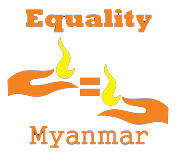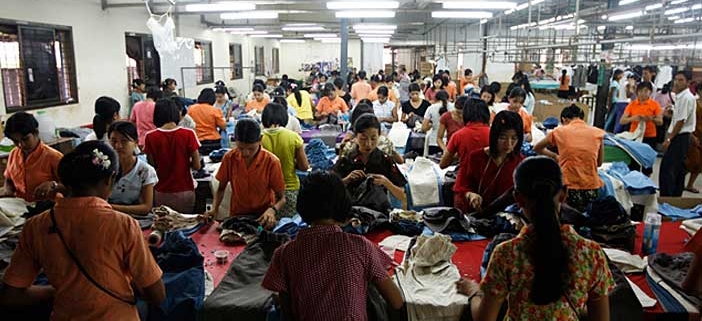TUESDAY, 13 MARCH 2012
A new labor organization law that gives Burmese workers the right to free association, create trade unions and strike will help minimize industrial action, claims the International Labour Organization (ILO).
Steve Marshall, Rangoon liaison officer for the ILO, told The Irrawaddy that the law would hopefully prevent strikes and labor disputes. The legislation came into effect on Friday and gives Burmese workers the right to walk out for the first time since 1962.
“It is a concept which is about social dialogue, creation of relationships between employees and employers,” said Marshall. “It is not purely about strikes, which should be the last tool in their relationships—an action of last resort.”
Application and understanding of the law would, according to Marshall, be “critical.”
“The critical thing will be getting to understand the law and how it can be best used,” he said. “There has actually got to be some cultural and behavioral change in the context of a lengthy history.” There were previously few formal regulations governing labor relations in Burma.
Last month workers at Chinese-owned Tai Yi slipper factory in Rangoon’s Hlaing Tharyar Industrial Zone (3) went on strike over pay, eventually accepting an arbitration court decision that saw workers gain a minimum wage of 51,000 kyat (US $63.8) per month excluding additional overtime fees.
The new legislation was announced in state media on Saturday with a notification signed by President Thein Sein. Marshall said the ruling “creates a completely new environment for all parties, from employers to the government and workers.”
The law allows workers to strike provided those in the private sector give three days prior notice, and those in the state sector give 14 days. Workers in certain essential services will be barred from walking out if the strike is deemed to threaten lives. Employers wishing to conduct a lock out of workers would have to give 14 days notice in all sectors.
Registration of unions is expected to occur steadily, with Marshall noting that, “even before the law passed or came into force, quite a number, probably somewhere between eight and 15 groups, submitted papers for registration.” Those wishing to start a labor organization would have to register with an official appointed by the president. Any group must contain a minimum of 30 people.
Ministers have previously expressed hope that the new legislation would also help the economy with greater regulation and rule of law, especially in labor-intensive manufacturing.
The ILO has helped with the drafting of the legislation—one of two remits the United Nations body has in the country, the other being investigating forced labor.
“All the evidence shows that forced labor is reducing,” said Marshall. “However, the number of complaints we receive is increasing. Because people understand the law and feel more secure, I would envisage the same in freedom of association. Quietly it will develop.”
Unions would not be able to fund political parties, as occurs in many countries, with the law stipulating that union funds can only be spent on “social welfare, education, sports, health, training courses related to skill and beneficial matters related for the workers.”
The regulations governing the law are still not widely available, but were created with ILO consultation. The legislation, however, passed through both Houses of Parliament—allegedly with some MPs in the ruling Union Solidarity and Development Party objecting to the inclusion of farmers on the bill. Two-thirds of the Burmese population currently work in agriculture.
All freedom of association was abolished in 1962 when former junta chief Gen Ne Win abolished parliamentary democracy in the country. In subsequent years, however, student unions have been instrumental in expressing opposition to the government.
July 7, 1962, is seen by many as the birth of populist movements in post-coup Burma when 100 protesting students were gunned down by the military on the Rangoon University campus. The following day the student union building was blown up by the regime.
Photo : Reuters


 Equality Myanmar (EQMM) is a leading nongovernmental organization that organises a wide range of human rights education and advocacy programs, the documentation human rights violations, and provides emergency support for activists, human rights defenders, and their families. We work with a range of local civil society organizations, educators, activists, various local actors, and our programs and activities reach all states and regions in Myanmar.
Equality Myanmar (EQMM) is a leading nongovernmental organization that organises a wide range of human rights education and advocacy programs, the documentation human rights violations, and provides emergency support for activists, human rights defenders, and their families. We work with a range of local civil society organizations, educators, activists, various local actors, and our programs and activities reach all states and regions in Myanmar.